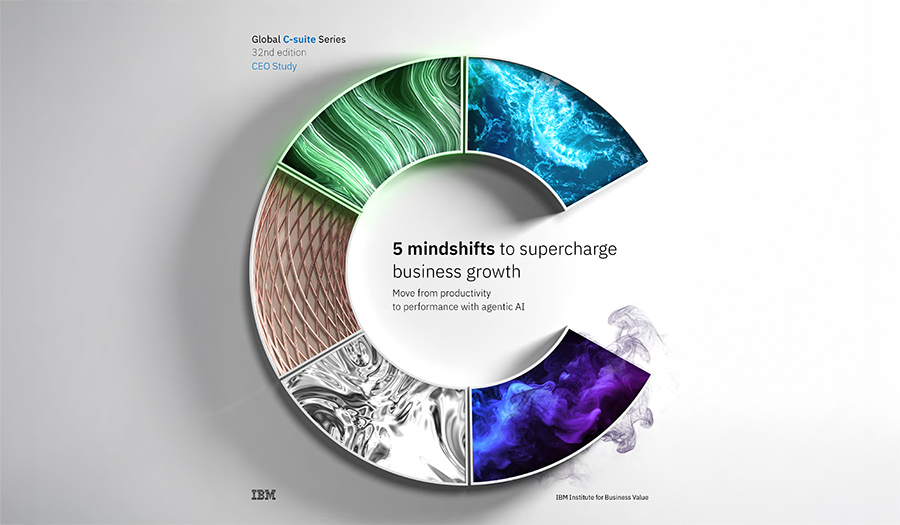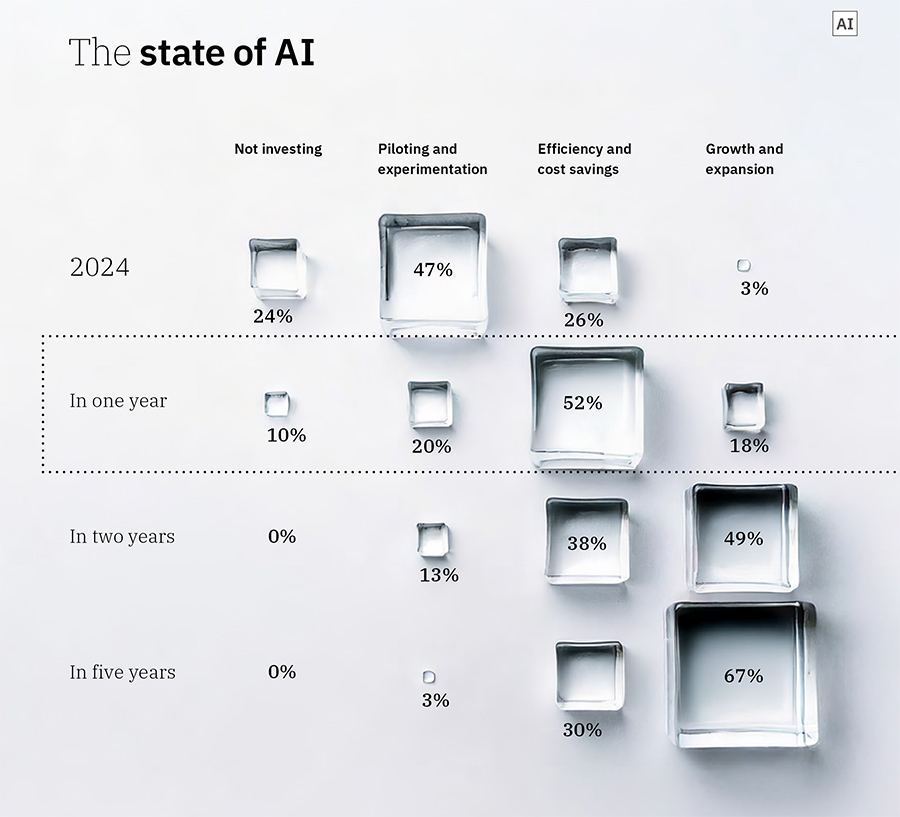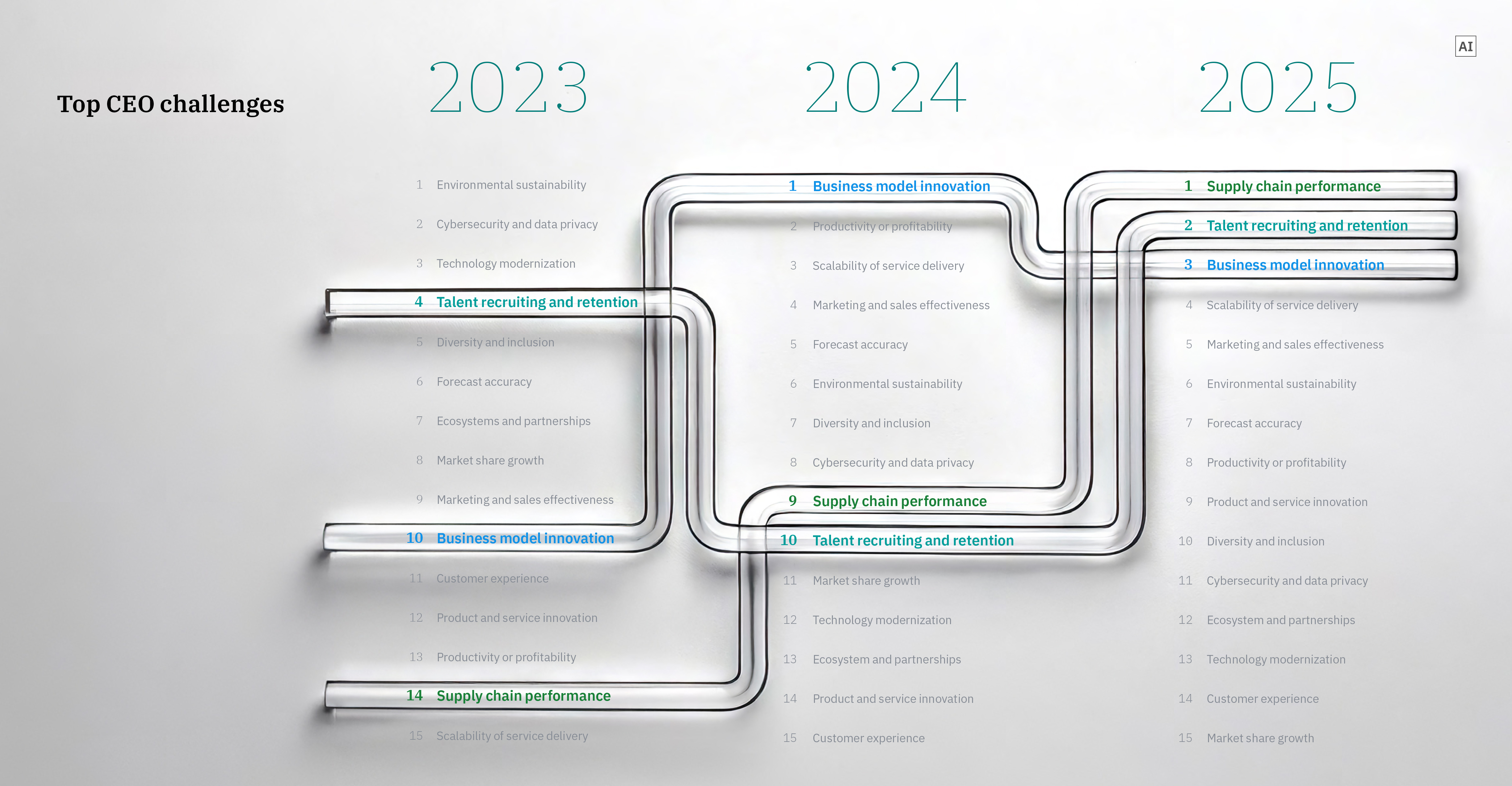
Six-in-ten businesses around the world are still in the piloting and experimentation phase with artificial intelligence, but UK executives are looking to take the lead, with 66% arguing they have to take more risks with the technology. Expectations of what that will yield may be shifting, though, with leaders increasingly viewing AI as a means to efficiency savings, and less as a means to expand operations.
Around the world and across all industries, executives remain excited around AI. Particularly, they are hopeful of the productivity boosts and efficiency savings it can yield, which could enable their businesses to expand in new directions. But the best part of three years since ChatGPT and generative AI entered the public conscious, the areas where leaders expect best returns seems to be shifting.
A new study from IBM has polled an international cohort of CEOs, and found that even as talk of the technology’s untapped possibilities remains rife, progress in the adoption of AI remains slow. In 2024, 10% of leaders expected that they would still not have invested in AI – and a year on, 11% have confirmed that is in fact the case. At the same time, two-thirds said they expected to move beyond the piloting phase, but in 2025, 60% are still stuck in this nascent period of experimenting.

Source: IBM
This lag may be coupled with a change in the priorities that many CEOs are chasing with their AI investments. When asked what they hoped AI could enable at their firm in the next five years, 64% of respondents in 2024 said they believed it could help drive growth, with new products or expansion into markets. In comparison, 30% said they believed efficiency and cost savings would be AI’s biggest offering by the end of the decade.
Now, however, while the ranking of priorities remains the same, the margins have narrowed. The number of CEOs expecting growth to be fuelled by AI has fallen by 12%, while the number believing it will lead to cost savings in the next five years has grown by 15%. This trend might be behind the reason why so many firms appear stuck in experimentation-mode – not only because they have been unable to progress their transformations, but also because some aiming to realise growth through AI have been come up short, and gone back to the drawing board to focus on finding efficiency savings through the technology.
Some of this might also relate to the rapidly changing economic climate, which has itself transformed the priorities of business leaders. In 2024, business model innovation was seen as the top item on the corporate agenda, driven by risk-taking investments in AI. But since the turn of the year, with the US government’s imposition of punitive tariffs on its allies and trade partners sending markets into a spiral, that has been turned on its head.

Source: IBM
With geopolitical tensions escalating, supply chain performance has shot to the top of the list, as companies look to secure what they have, rather than grow it – something where AI efficiencies could be key. At the same time, with increasingly hostile border policies making recruitment more difficult, and inflation seeing human employees require higher wages to live, talent issues – where AI is also being seen as an alternative – has overtaken innovation as a priority.
But this trend is not the same everywhere. IBM also found that in the UK, the era of experimentation is coming to an end, as two-thirds of UKI CEOs firmly believe their organisations’ competitive edge will hinge on a robust generative AI strategy, including positive rather than defensive gains. 64% of UKI leaders see automation’s productivity gains as worth the significant risk to remain competitive, while 66% feel they must take more risks than rivals to stay ahead. And while 77% facing growth barriers from inconsistent standards, 82% of UKI executives are still committed to sustaining or accelerating their efforts.
“As expectations around AI shift towards competitive advantage and quantifiable ROI, CEOs are embracing risk as an opportunity to drive business performance”, commented Rahul Kalia, managing partner, UK and Ireland, IBM Consulting. “AI-first mindset has gained traction as CEOs navigate disruption while driving growth.”
